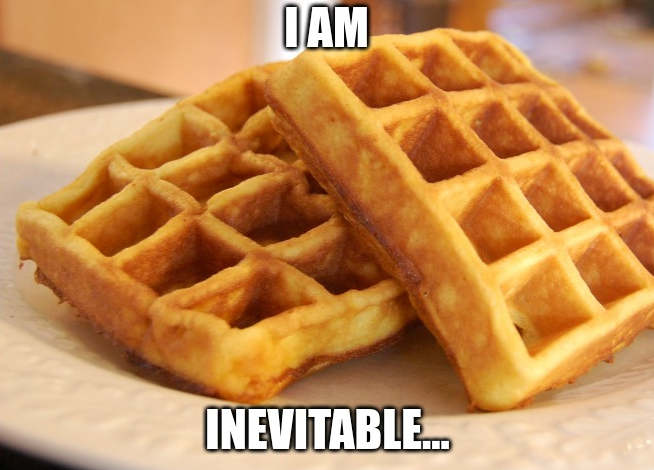Covid, WFH, Musk, The fall of Twitter, Netflix plateau, Reddit Blackout, Crippling interest rates, Trump, Decentralisation, Tech Antitrust, Ukraine
Adding in Edit: AI, Climate Crisis, Nazis, Fascism, Democratic backsliding, automation, mass unemployment, rising homelessness, wild fires
How are you feeling these days?
We sure do live in interesting times
I saw the title and thought it was going to be exciting/positive haha
Like there’s an impending economic shift coming due and the powers that be are doing everything they can to try and prevent it. Unfortunately for them this is inevitable.
It think we have cycles because people remember things that happen in their lifetime but fail to adequately instil that knowledge in the next and subsequent generations. The wealth inequality of the 1920s was the catylist for much of the economic turmoil of the great depression and laid some of the context for the New Deal era. The strong rules for antitrust and managing monopolies were put in place to prevent a repeat and while the generations who lived through the great depression were dominant they survived. As those older generations died out and as the following generations grew in influence those protections were weakened and eventually mostly dismantled, resulting in massive changes from the 70s onwards. Those protections were eroded and wealth and income inequality grew until we reached and surpassed the levels of the 1920s.
I think the same happens for other things like the idea that Nazis are bad or must be resisted, or that religious ideologies should ve kept seperate from the government, or healthcare is something we can help each other to gain, or that workers can have power by working together. What I find hopeful is hearing discussion of all of these ideas in fairly accessible places and people do seem to be studying history in order to avoid repeating it.
At this point we should have a “We Didn’t Start The Fire” parody for all the nonsense that’s happend over the last 3 years. Feels loke the Roaring 20s, but just more cbaotic and socially conscious.
All I’m trying to do is just find myself and enjoy life, and I’m a little anxious to see where we end up. Hopefully it’s somewhere where we come out better as a society.
We could indeed be on the brink of something. The conditions are there but for what? Will we end capitalism, make a new system and try for a better world? Or will we fall into fascism once more?
Even if it’s finally the day we move on from this system that keeps threatening to collapse on itself every 6 months… it’s gonna get a whole lot worse before it gets better…
deleted by creator
AI is going to usher in an age of workerless utopia for corporations, or at least significantly less workers. AI is computationally expensive and capital intensive, so only those with capital are going to be able to deploy it and benefit from it on a large scale. Hiring people is the bane of capitalists. Once business figures out how to use AI beyond customer support chatbots and data analysis, we’re going to see a lot of unemployed and/or unemployable people.
This argument applied to computers back when they took up entire rooms. Now we have much better ones in our pockets.
AI will get cheaper and more accessible. In other words, it will be democratized.
Now, if we are able to mix AI with robots to automate more manual tasks previously done by humans? Yeah that will cause some unemployment.
Yeah, it is kind of scary. We’re at that cusp of development which could be as big as that shift in globalization and technology was in the late 1970s…we have made so much technological progress, but little social progress, and that means we are very ill equipped to deal with the awesome power of the technology in front of us…
Notice how 90% of that are rich people causing or amplifying those situations to happen?
COVID - Trump sabotage any effort made to prevent the spread and we lost 1 million people due to that.
Climate Crisis - Oil Giants/Automobile industry sabotage the public transportation which would have a long term ramification to reduce oil consumption overall.
Nazis/Fascism - Rich People fund/outright purchase mass media to create chaos in public perspectives and polarize the political parties. Koch Brothers are funding far right politic and pushing hard for nazism. And of course, don’t forget about Sinclair broadcast.
Ukraine - Putin and the Oligarch
I could go on. Almost all of the problems begin and end with the rich people. #EatTheRich
I have been trying to mention this trend to people as much as possible when they bring up issue X. A divided populace is easier to control, and here we are with various “culture war” topics constantly on the news, more and more fear mongering etc etc. But for every divisive cultural issue, there’s a group of rich people who stand to gain, in one way or another, from the division itself and the fact that it keeps us (the poor-er majority) from solving real problems.
The fact is, if we fix the wealth inequality problem we fix a lot of others, and we would also be able to focus our collective energy appropriately at the others which may not naturally fall away.
That’s not to say we shouldn’t focus on everything – but our best bet for a livable future is to start eating the rich now.
Edit: a word
This sounds like a new version of We Didn’t Start the Fire
We didn’t change the weather. It was always warming since the wealth’s been hoarding.
Honestly, we are potentially on the cusp of the next great societal shift not only in how countries are ran, but probably also where the sphere of global influence resides. I don’t know how it will all end it, whether it will end with China superseding the US as a global influencer and power, or if we will go the way the Nazis have been trying to direct us since the 30s and the entire world takes a dramatic shift to the far right.
Quite frankly, it’s terrifying. Being in the United States and watching our political climate dissolve into a party who is afraid of embracing the young and go further left, and a party whose only interest is owning the libs and helping the 1% become even wealthier while the rest of us have to suffer through greedflation is really frustrating. My wife and I have talked about leaving, but we have JDs, and American JDs are basically useless outside of the U.S. unless you went to Harvard/Stanford/Yale and can land a job in Big Law, which we did not.
I’ve thought about going back to school and getting a degree in programming, or trying to find another way to learn and get the experience/certifications I would need, but I have absolutely no idea where to start with that or how to look for those kinds of jobs.
I’d skip the programming. The tales coming out of Silicon Valley on Blind have convinced me the gold rush is basically over. If you have something you like doing that exists as a trade; Things like woodworking, electrical, plumbing, I’d look into that. The rules around them as a profeasional might change but the fundamentals are great for anywhere you go. Programmers are useful but we are about to fall off a tradesperson cliff. You’d be able to command 100 an hour at least if you are competent and polite.
I’d be wary of the trades as well. I am now an engineer, previously a welder. Unless you operate your own business, a trade is super unlikely to match the standard of living that a couple JDs would be used to. Also, most EU countries have very regimented training and qualification systems for tradespeople that start when you’re pretty young.
In the US, there is a labor shortage of skilled tradespeople and manufacturing workers, so there is a huge push to get more people into it. The nasty secret though, is that there is a labor shortage because pay has not been rising and benefits are a joke.
Corporations push high school kids and laid off tech workers towards the trades with promises of good prospects, high wages, and solid benefits. The reality though, is that most of them will end up trapped in mind numbing dead end jobs where their labor and emotional/physical health will be exploited until they aren’t useful to the company any more.
Manufacturers in particular are extremely reluctant to give their floor workers a bigger piece of the pie. So expanding the labor pool is an important long term strategy to ensure that wages stay low and that they can continue exploiting their workers as efficiently as possible.
Not trying to be a bummer, but I’ve lived both sides of this. The Association of Equipment Manufacturers, chambers of commerce, etc have a very strong and widely accepted narrative when it comes to the manufacturing labor shortage, so I think it’s extremely important to spread a counter narrative when I can.
On the positive side, there are some really simple things that can be done to help alleviate the labor shortage: increase pay and benefits. We finally started to see a tiny bit of that during covid, and I’m hopeful that the trend will continue. It’s frustrating though that it takes a near collapse of industry before manufacturers will even consider raising compensation.
Solid take. Thanks for giving that perspective. I was operating on some of that propaganda and hadn’t heard that side of it.
History oft repeats itself. By reading a lot about the past, I feel more relaxed about the future.
A book I read recently was a history about a moral panic starting, how people became marginalized, how there were times of extreme terror, how a social movement started, and eventually entered the mainstream. Laws were reversed, the group of people became normal, and became part of greater society.
The goverment had gone from decade+ of progressivism with a opposition party in decline, to the accidental discovery of a powerful social tool to tap into the hate built into humans. They leveraged that tool to bring their party back to relevance in the face of declining power.
It’s victories were temporary though, and their very tapping into that hate was what undermined them. The boy that cried wolf couldn’t keep crying about it when people realized it was just a ruse.
Almost the exact same things are happening today. A similar moral panic kicked off. Someone is crying wolf and is trying to be the constant victim. Most people will be exposed to the alleged “wolf” (who turns out to be floofy and nice!) And America calms down again for another 20-40 years.
Thank you for this - these days it’s really hard for me not to be pessimistic about the future, and this reminder helps put me at ease. Nonetheless, things are absolutely scary right now - does that book go into detail about the damage done during said moral panic? Also, what book was it?
Yeah, it does go into the damage done. But it also sets up well for Stonewall and how everything was on the road to change. It’s the Lavender scare by David K Johnson! More about it in the comment above. :) https://www.amazon.com/Lavender-Scare-Persecution-Lesbians-Government/dp/0226401901
I believe trans rights are currently in 1954 ish. But unlike 1954, it’s much, mucher harder to fully slam the door on this one because being queer has been normal for so long, hateful people have a much more difficult time siloing people this go around. And this time, people aren’t ashamed, they’re fiercely protesting this, which is a healthy sign that we aren’t as authoritarian as places that have recently fallen, like Hong Kong.






